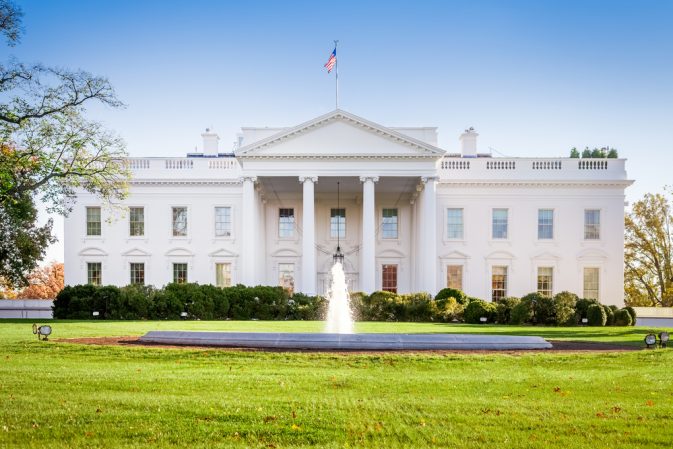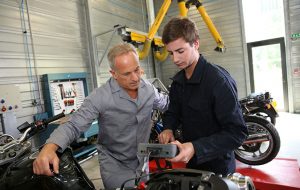Trump’s Council on Workforce Development Will Help Close Skills Gap

Last week, President Trump signed an executive order to establish the Council for the American Worker. This interagency workforce development initiative will expand apprenticeships, workforce training, and market-based education reform to equip workers with the skills needed to succeed in today’s fast-changing economy. This is the type of nonpartisan initiative that will help workers, employers, and the economy. Don’t expect to hear about it from the mainstream media, which is too focused on division.
This effort is needed now. The so-called “skills gap” is arguably the biggest hurdle facing the labor market today. While the unemployment rate is at the historic low of 4 percent, there are currently 6.6 million available jobs that employers cannot fill. Surveys of business owners indicate that the biggest hurdle they face is an inability to find skilled employees. Nearly half of businesses cannot find the workforce talent they need. That number jumps to about three-quarters for the skilled trades.
This skills gap depresses economic growth because employers are forced to close early, limit expansion, and artificially reduce production capacity for lack of qualified workers. While other developed nations dealing with double-digit unemployment rates may see too many available jobs as a good problem to have, it is a problem nonetheless.
The Council will address this skills gap by trying to refocus education on the needs of the 21st century rather than the 19th. Specifically, it will create a set of industry-recognized, portable credentials that workers can take with them from job to job. Such credentials will be a more valuable and less costly form of education than what’s currently provided. They will also help employers by providing more objective measures of competence.
Perhaps the most promising aspect of the initiative is a pledge by national employers to commit to training their employees with the skills needed to flourish in the modern economy. So far, the White House has already received employer commitments to provide 3.8 million new apprenticeship and training opportunities, with millions more to come.
At HM Manufacturing, a power transmission manufacturing company based near Chicago, all employees go through extensive training provided by the company. This has allowed several employees to advance from entry-level positions all the way up to senior-level programmers. It also offers apprenticeships to local high-school students and donates to entrepreneurial programs in the community. These initiatives have helped narrow the skills gap for prospective employees.
Taken together, these workforce development initiatives are part of the Job Creators Network’s broader “Fight for $50” — a years-long initiative that helps people get $50,000-a-year careers, which can support their families and allow them to live the American Dream. According to the Labor Department, there are millions of available jobs that pay around this threshold income or more. These jobs, often in the skilled trades, require more than a high-school education but not a four-year degree. They take a knowledge of soldering, not sociology.
According to the Labor Department, more than 90 percent of apprenticeship participants find employment after completing their programs, and their average starting wage is $60,000 annually. They earn $300,000 more in their lifetimes than they would otherwise, and start their careers without the burden of student loan debt.
With the economy at full employment, the next labor-market challenge is helping those with jobs embark on good careers. No matter how hot the economy is, good careers require skills. That’s what the White House’s Council for the American Worker, HM Manufacturing’s training programs, and the Fight for $50 are all trying to provide.
Nicole Wolter is the president of HM Manufacturing and a member of Job Creators Network. Alfredo Ortiz is president and CEO of the Job Creators Network.





